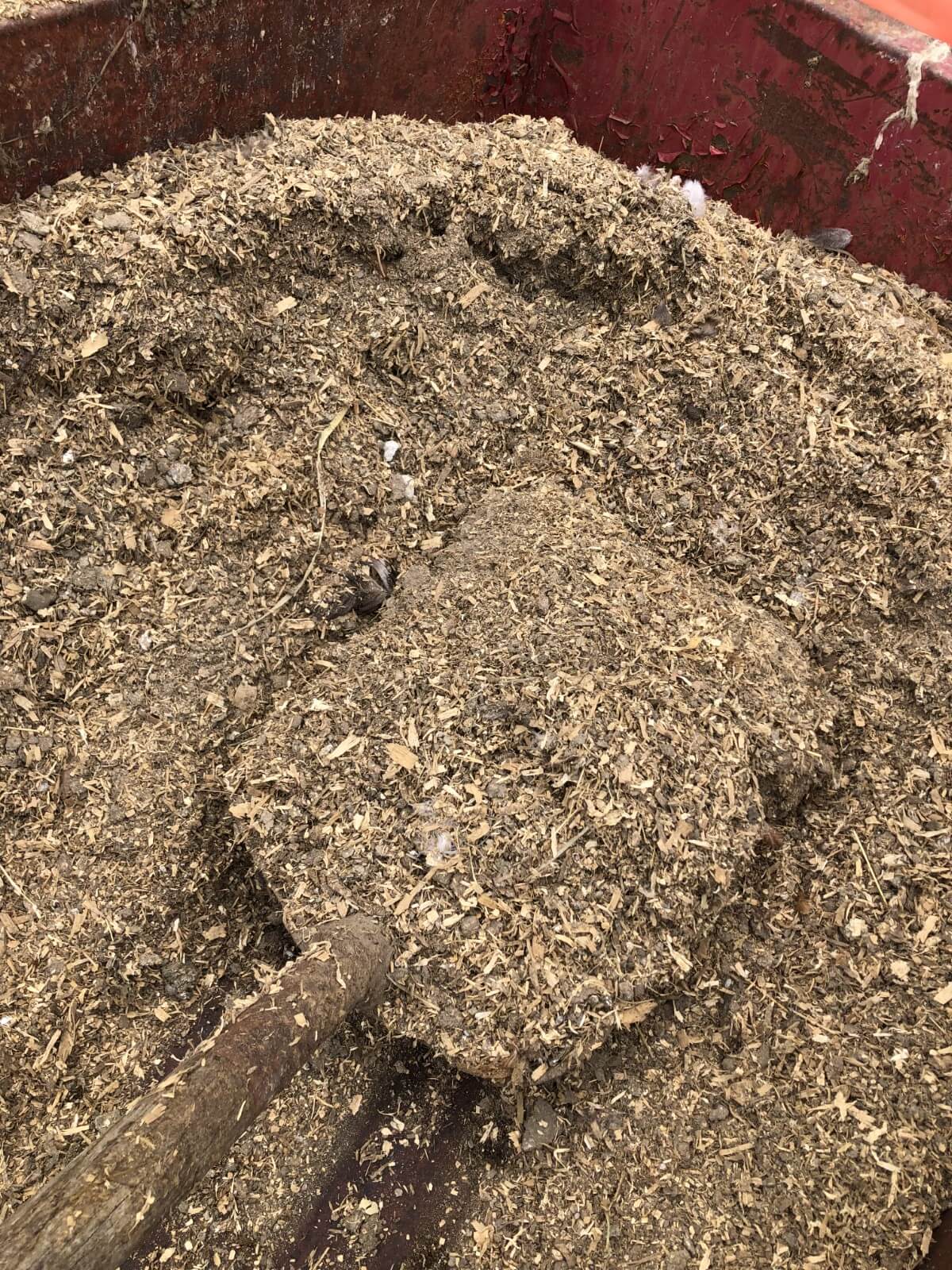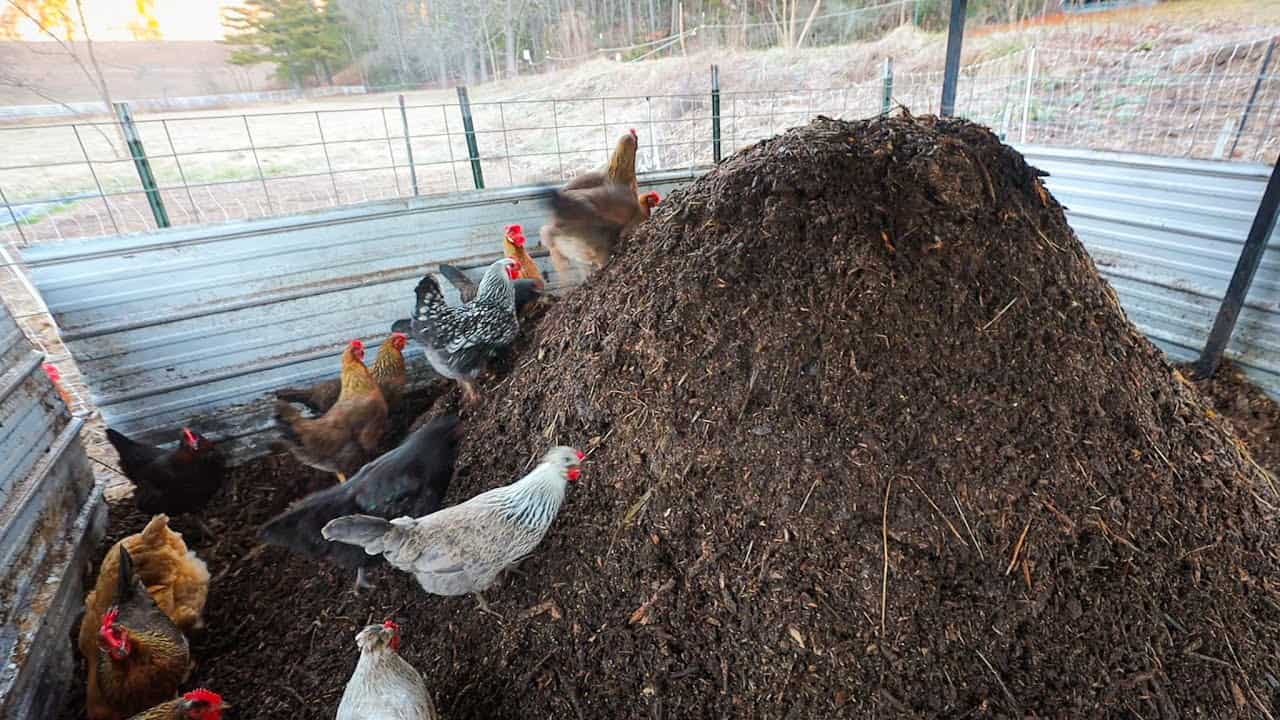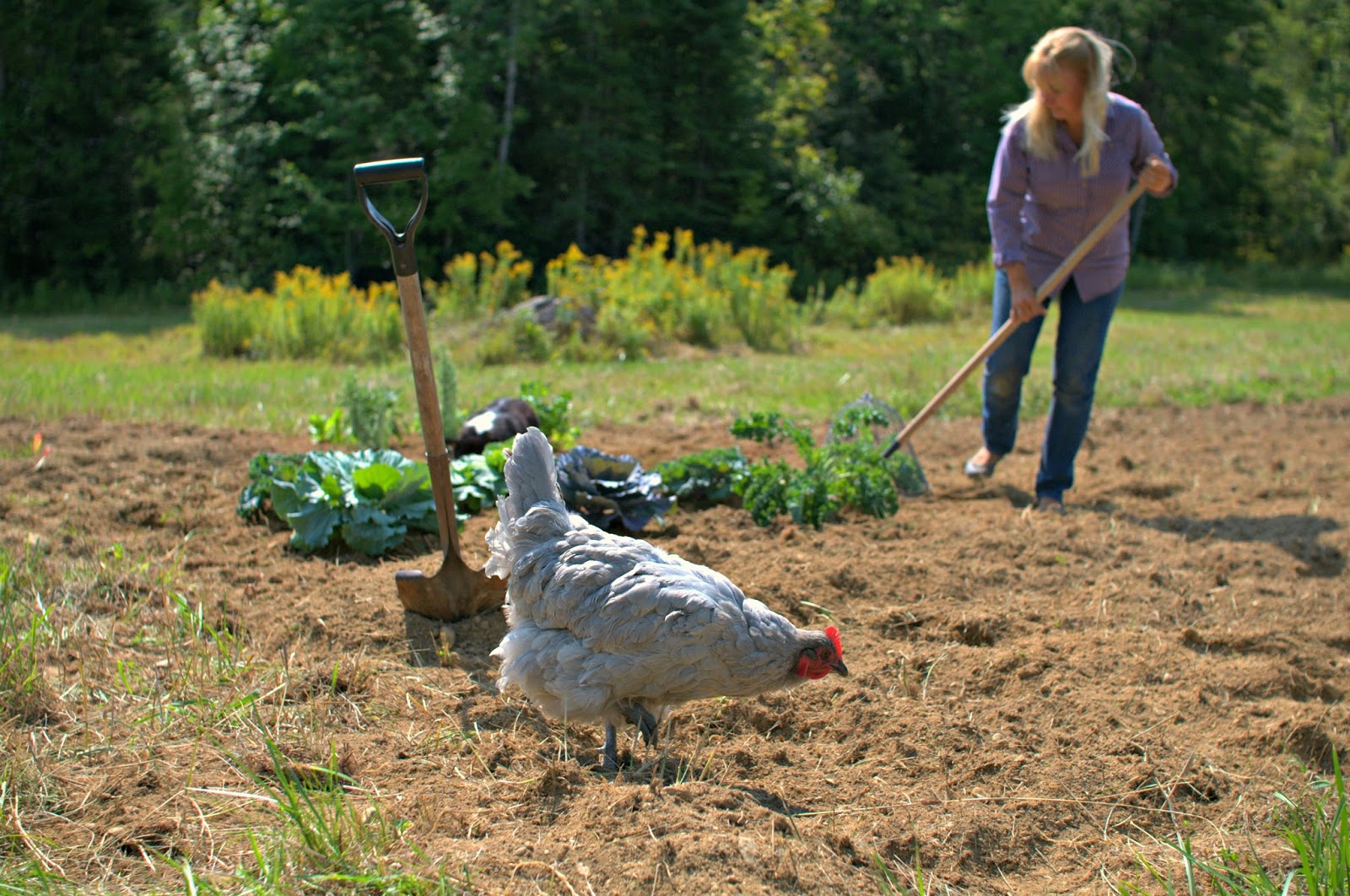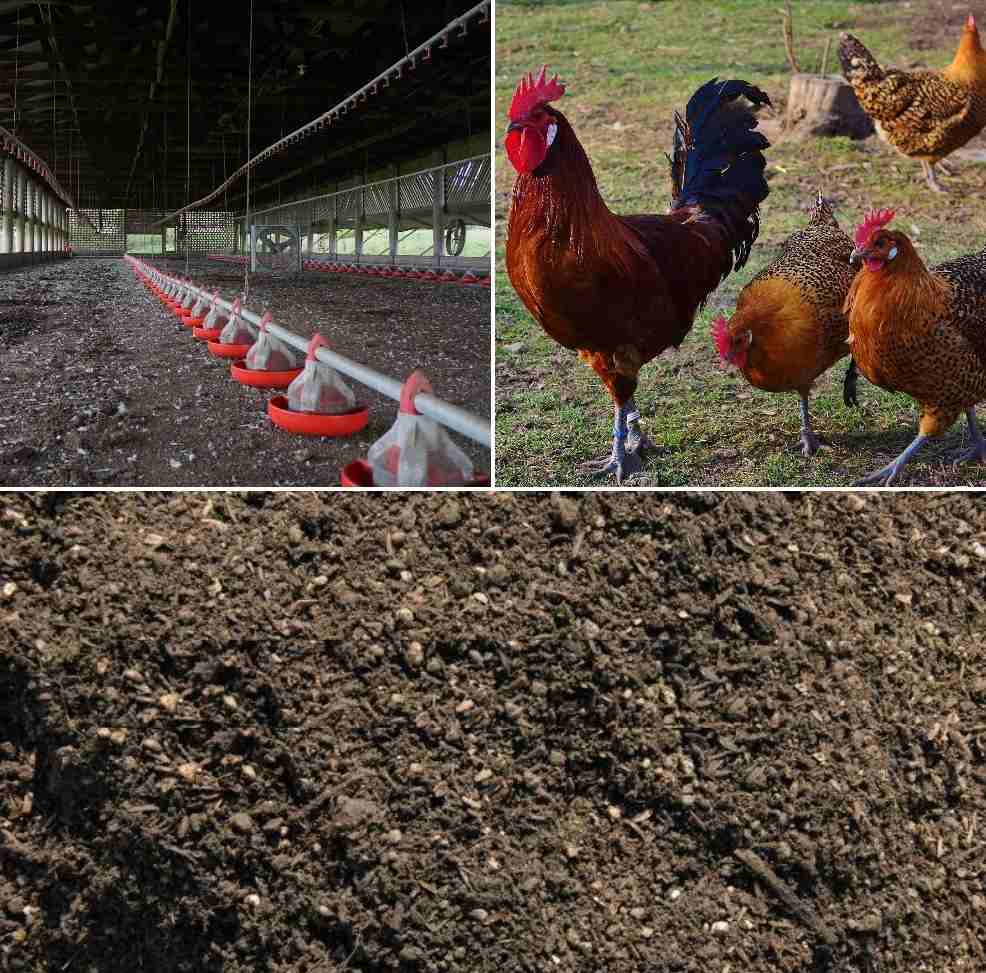Unlocking the Power of Chicken Manure for a Thriving Garden
As gardeners, we’re constantly seeking ways to create a thriving and sustainable garden ecosystem. One often-overlooked yet highly effective method is using chicken manure as a natural fertilizer. But is chicken manure good for gardens? The answer is a resounding yes. Chicken manure is a rich source of essential nutrients, including nitrogen, phosphorus, and potassium, making it an ideal addition to any garden.
Unlike synthetic fertilizers, chicken manure is a slow-release fertilizer that provides a steady supply of nutrients to plants over an extended period. This reduces the risk of over-fertilization and promotes healthy plant growth. Additionally, chicken manure is high in organic matter, which helps to improve soil structure, increase water retention, and support beneficial microbial activity.
Chicken manure is also an excellent way to address common soil deficiencies. For example, if your soil is lacking in nitrogen, chicken manure can provide a boost of this essential nutrient. Similarly, if your soil is deficient in phosphorus, chicken manure can help to promote healthy root development and fruiting.
Furthermore, using chicken manure in your garden can help to reduce your environmental footprint. By utilizing a natural and readily available resource, you’re reducing the need for synthetic fertilizers and minimizing waste. This approach also promotes a more circular and sustainable gardening practice.
When used correctly, chicken manure can be a game-changer for gardeners. By incorporating this natural fertilizer into your gardening routine, you can create a thriving and resilient garden ecosystem that’s better equipped to withstand pests, diseases, and environmental stressors.
So, if you’re looking for a natural and effective way to fertilize your garden, consider giving chicken manure a try. With its rich nutrient profile, slow-release properties, and environmental benefits, it’s an ideal choice for gardeners seeking a more sustainable and productive gardening approach.
How to Use Chicken Manure in Your Garden for Optimal Results
Now that we’ve explored the benefits of using chicken manure in your garden, it’s time to dive into the practicalities of application. To get the most out of this natural fertilizer, follow these step-by-step guidelines:
1. Composting is key: Before using chicken manure in your garden, it’s essential to compost it to reduce pathogens and weed seeds. This process involves mixing the manure with other organic materials, such as straw or leaves, and allowing it to break down over time.
2. Choose the right application rate: The ideal application rate for chicken manure varies depending on the specific needs of your garden. As a general rule, apply 1-2 inches of composted chicken manure per 100 square feet of garden bed.
3. Timing is everything: Apply chicken manure at the right time to maximize its benefits. For most gardens, this means applying it in the spring or fall, when the soil is cooler and the risk of burning plants is lower.
4. Mix with other fertilizers: Chicken manure can be used in conjunction with other natural fertilizers, such as compost or worm castings, to create a balanced fertilizer blend.
5. Soil test and adjust: Before applying chicken manure, test your soil to determine its nutrient levels and pH. Adjust the application rate accordingly to avoid over-fertilizing.
By following these guidelines, you can unlock the full potential of chicken manure and create a thriving, sustainable garden. Remember, the key to successful chicken manure use is to compost it properly and apply it at the right rate and time.
So, is chicken manure good for gardens? The answer is a resounding yes, when used correctly. With its rich nutrient profile and sustainable benefits, chicken manure is an ideal choice for gardeners seeking a natural and effective fertilizer solution.
The Nutritional Benefits of Chicken Manure for Plants
Chicken manure is a nutrient-rich fertilizer that provides a range of essential nutrients for plant growth and development. One of the key benefits of using chicken manure is its high nitrogen content, which is essential for leaf growth and development. Chicken manure also contains phosphorus, which promotes root growth and development, and potassium, which helps to regulate water balance and promote overall plant health.
The nutritional composition of chicken manure can vary depending on the diet and health of the chickens, as well as the method of collection and storage. However, on average, chicken manure contains:
- 2-4% nitrogen
- 1-2% phosphorus
- 1-2% potassium
These nutrients are released slowly as the manure breaks down, providing a steady supply of nutrients to plants over an extended period. This makes chicken manure an ideal fertilizer for plants that require a steady supply of nutrients, such as fruit trees and vegetables.
In addition to its nutrient content, chicken manure also contains beneficial microorganisms that help to break down organic matter and promote soil health. These microorganisms can help to improve soil structure, increase the availability of nutrients, and promote the growth of beneficial microorganisms.
Overall, the nutritional benefits of chicken manure make it an ideal fertilizer for gardeners looking to promote healthy plant growth and development. By using chicken manure as a natural fertilizer, gardeners can reduce their reliance on synthetic fertilizers and create a more sustainable and environmentally friendly gardening practice.
So, is chicken manure good for gardens? The answer is a resounding yes, thanks to its rich nutrient profile and beneficial microorganisms. By incorporating chicken manure into your gardening routine, you can create a thriving and sustainable garden that’s better equipped to withstand pests, diseases, and environmental stressors.
Comparing Chicken Manure to Other Natural Fertilizers
While chicken manure is an excellent natural fertilizer, it’s not the only option available. Other natural fertilizers, such as cow manure, compost, and worm castings, also offer unique benefits and drawbacks. In this section, we’ll compare the effectiveness of chicken manure to these other natural fertilizers, and provide guidance on choosing the best fertilizer for specific gardening needs.
Cow manure, for example, is another popular natural fertilizer that’s high in nutrients and beneficial microorganisms. However, it tends to be more alkaline than chicken manure, which can be a concern for gardeners with acidic soils. Compost, on the other hand, is a broad-spectrum fertilizer that’s rich in nutrients and beneficial microorganisms. However, it can be more expensive than chicken manure, and may require more time and effort to produce.
Worm castings, also known as vermicompost, are a nutrient-rich fertilizer produced by worms as they break down organic matter. They’re an excellent choice for gardeners looking for a slow-release fertilizer that’s high in nutrients and beneficial microorganisms. However, they can be more expensive than chicken manure, and may require specialized equipment to produce.
So, how do these natural fertilizers compare to chicken manure? Here’s a summary of their unique benefits and drawbacks:
- Cow manure: high in nutrients and beneficial microorganisms, but may be too alkaline for acidic soils
- Compost: broad-spectrum fertilizer that’s rich in nutrients and beneficial microorganisms, but may be more expensive and time-consuming to produce
- Worm castings: slow-release fertilizer that’s high in nutrients and beneficial microorganisms, but may be more expensive and require specialized equipment to produce
- Chicken manure: high in nutrients and beneficial microorganisms, with a balanced pH and low cost
Ultimately, the best natural fertilizer for your garden will depend on your specific needs and preferences. By considering the unique benefits and drawbacks of each option, you can make an informed decision and choose the best fertilizer for your garden.
So, is chicken manure good for gardens? The answer is a resounding yes, thanks to its balanced pH, high nutrient content, and low cost. However, it’s always a good idea to consider other natural fertilizers and choose the best option for your specific gardening needs.
Addressing Concerns about Using Chicken Manure in the Garden
While chicken manure can be a valuable addition to your garden, there are some common concerns that gardeners may have about using it. In this section, we’ll address some of the most frequently asked questions and provide reassurance and guidance on how to mitigate any potential risks.
One of the most common concerns about using chicken manure in the garden is the risk of disease transmission. However, this risk can be minimized by ensuring that the manure is properly composted and aged before use. Composting chicken manure kills off any pathogens that may be present, making it safe for use in the garden.
Another concern is the potential for weed seed contamination. However, this can be avoided by ensuring that the manure is properly composted and sifted before use. Sifting the composted manure will remove any weed seeds that may be present, making it safe for use in the garden.
Some gardeners may also be concerned about the potential for unpleasant odors when using chicken manure in the garden. However, this can be minimized by ensuring that the manure is properly composted and aged before use. Composting chicken manure reduces the odor and makes it more pleasant to use in the garden.
Finally, some gardeners may be concerned about the potential for nutrient imbalances when using chicken manure in the garden. However, this can be avoided by ensuring that the manure is properly balanced with other fertilizers and soil amendments. A balanced fertilizer program will ensure that your plants receive the nutrients they need to thrive.
So, is chicken manure good for gardens? The answer is a resounding yes, when used properly and with caution. By following the guidelines outlined in this article, you can minimize the risks associated with using chicken manure in your garden and maximize its benefits.
Remember, chicken manure is a natural and valuable resource that can provide essential nutrients for plant growth and improve soil health. By using it in your garden, you can create a thriving and sustainable ecosystem that will provide you with years of enjoyment and bounty.
Real-Life Examples of Successful Chicken Manure Use in Gardens
While the benefits of using chicken manure in the garden may seem theoretical, there are many real-life examples of gardeners who have successfully used this natural fertilizer to achieve impressive results. In this section, we’ll share some inspiring stories of gardeners who have harnessed the power of chicken manure to create thriving and sustainable gardens.
One such example is Sarah, a gardener from California who used chicken manure to transform her barren backyard into a lush oasis. By incorporating chicken manure into her soil, Sarah was able to increase her crop yields by 50% and reduce her water consumption by 30%. She credits the chicken manure for its ability to retain moisture and nutrients in the soil, making it an ideal fertilizer for her drought-prone region.
Another example is John, a gardener from New York who used chicken manure to improve the soil health of his community garden. By composting chicken manure and incorporating it into the soil, John was able to increase the soil’s organic matter content by 20% and reduce its pH levels by 1.5 points. This resulted in healthier plants, increased crop yields, and a more sustainable gardening practice.
These examples demonstrate the potential of chicken manure to transform gardens and improve soil health. By using this natural fertilizer, gardeners can create thriving ecosystems that are more resilient to pests, diseases, and environmental stressors.
Before-and-after photos of these gardens show the dramatic improvements that can be achieved with chicken manure. From barren soil to lush greenery, the results are nothing short of remarkable.
So, is chicken manure good for gardens? The answer is a resounding yes, as evidenced by these real-life examples of successful chicken manure use. By incorporating this natural fertilizer into your gardening practice, you can achieve similar results and create a thriving and sustainable garden that will provide you with years of enjoyment and bounty.
Maximizing the Benefits of Chicken Manure through Composting
Composting chicken manure is an essential step in maximizing its benefits and minimizing its drawbacks. By composting chicken manure, you can reduce the risk of disease transmission, weed seed contamination, and unpleasant odors. In this section, we’ll discuss the importance of composting chicken manure and provide guidance on how to do it effectively.
The composting process involves mixing chicken manure with other organic materials, such as straw or leaves, and allowing it to break down over time. This process kills off any pathogens that may be present in the manure, making it safe for use in the garden. Composting also reduces the odor of the manure and makes it more pleasant to use.
To compost chicken manure effectively, it’s essential to maintain the right carbon-to-nitrogen ratio. A mix of 2/3 “brown” materials (such as straw or leaves) and 1/3 “green” materials (such as chicken manure or grass clippings) is ideal. This ratio ensures that the compost pile has enough carbon-rich materials to balance out the nitrogen-rich materials.
Moisture levels are also crucial when composting chicken manure. The compost pile should be kept moist, but not soggy. Aeration is also essential, as it helps to speed up the composting process and reduce odors.
By composting chicken manure, you can create a nutrient-rich fertilizer that is perfect for use in your garden. Composted chicken manure is high in nitrogen, phosphorus, and potassium, making it an ideal fertilizer for plants. It’s also a natural and sustainable way to improve soil health and reduce waste.
So, is chicken manure good for gardens? The answer is a resounding yes, when composted properly. By following the guidelines outlined in this article, you can create a nutrient-rich fertilizer that will help your plants thrive.
Conclusion: Harnessing the Power of Chicken Manure for a Thriving Garden
In conclusion, chicken manure is a valuable natural fertilizer that can provide essential nutrients for plant growth and improve soil health. By understanding the benefits and advantages of using chicken manure in the garden, gardeners can make informed decisions about how to use this natural resource to create a thriving and sustainable garden.
Throughout this article, we’ve explored the benefits of using chicken manure in the garden, including its high levels of nitrogen, phosphorus, and potassium. We’ve also discussed the importance of composting chicken manure to reduce pathogens and weed seeds, and provided guidance on how to use chicken manure in the garden for optimal results.
Additionally, we’ve compared the effectiveness of chicken manure to other natural fertilizers, such as cow manure, compost, and worm castings. We’ve also addressed common concerns about using chicken manure in the garden, such as the risk of disease transmission, weed seed contamination, and unpleasant odors.
By following the guidelines outlined in this article, gardeners can harness the power of chicken manure to create a thriving and sustainable garden. Whether you’re a seasoned gardener or just starting out, chicken manure is a natural fertilizer that’s worth considering.
So, is chicken manure good for gardens? The answer is a resounding yes. With its high levels of essential nutrients and ability to improve soil health, chicken manure is a valuable natural fertilizer that can help gardeners create a thriving and sustainable garden.
We encourage you to give chicken manure a try in your garden and experience the benefits for yourself. And if you have any questions or concerns, please don’t hesitate to reach out. We’d love to hear from you and help you on your gardening journey.








